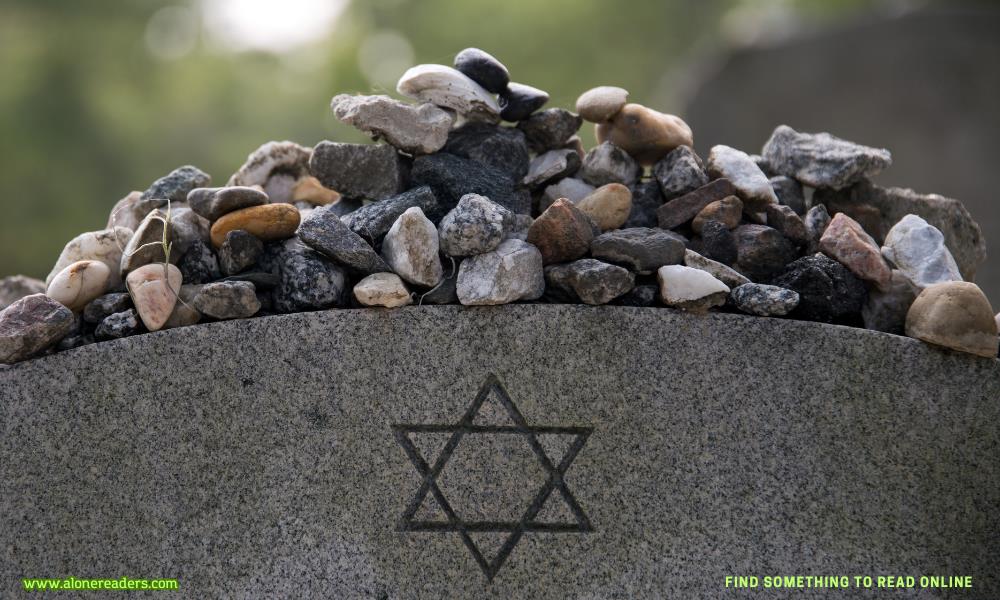Chapter One
The late-evening sea air swept through the open window. Cleo inhaled greedily, glad for the fresh gust of salty wind. The cottage was stale, rank from too many bodies and the ripe, coppery tang of blood drifting downstairs. She shook a strand of hair away from where it dangled in her eyes and readjusted the sleeping toddler in arms that had long since gone numb.
She knew from experience that it would be days before the stench faded. And even then she would still smell it. The odor of death never completely vanished from her senses.
Heavy footsteps sounded on the plank stairs and she moved the sleeping toddler from her arms. Quickly, gently, she laid Bess on one of several pallets lining the floor before the stove.
A total of fourteen children slept on the ground floor. More crowded than usual. The youngest four usually slept in the loft with Cleo’s mother and stepfather while the rest of them bedded down on the first floor each night. The pallets were always cleared away each morning like a bad dream erased and forgotten.
Except Cleo could never forget. It was a wretched existence. Even though she knew nothing but this life, Cleo knew this. She felt it, absorbed this awareness of her squalid surroundings with every sip of breath. Pulling the threadbare blanket up over Bess, she swung around as Mrs. Dubbins reached the bottom floor.
Cleo rose to face their neighbor expectantly, her heart a tight, twisting mass in her chest. Mrs. Dubbins had helped with her mother every time, too many times for Cleo to count . . . which made her a regular fixture in their home.
“How is she?” Her hands fisted at her sides.
Mrs. Dubbins shook her gray-streaked head, the weathered lines of her face drawn and tight. “She can’t do this again.”
Cleo nodded jerkily. They were the same words Mrs. Dubbins had advised last time. The last five times. Still, he didn’t listen. Didn’t care. Didn’t stop.
Her eyes ached, but no tears burned there. She stared with dry eyes. She was past weeping. Tears would not help. Nothing could be done. Her stepfather would never change.
As if the thought conjured him, the thud of his boots shook the stairs. She looked up, watching as he descended. His large frame ate up all the space in the small cottage.
Cleo gazed at his ruddy, thick-boned face, carefully schooling her features to reveal none of the loathing she felt for this man. He’d been handsome once. She could see the evidence in the swollen features of his face, the nose bulbous from too much drink and hard living.
Her mother claimed that he’d been charming once, too, a catch. Which made it all the more incomprehensible that he’d ever wanted Cleo’s mother—an unwed mother, ruined and reviled—living off the charity of relations. And yet wanted her he had. Even with a four-year-old Cleo in tow.
She saw nothing appealing about him as he stopped before her, his boots sliding to a halt.
“See to this,” he said, holding out the small blanket-wrapped bundle.
A familiar command.
With a single nod, she took the still warm bundle and brought it close to her body, waiting as he fished the halfpenny from his pocket. With great reluctance he handed it to her.
She knew if he could, he’d simply toss the body into the sea, but people would know. Ceremony and ritual were everything. Such an act would bring the wrath of their neighbors upon them. He’d do the bare minimum and see that the babe was laid to rest on consecrated soil.
With a murmured farewell to Mrs. Dubbins, Cleo collected her cloak from the hook by the door and set out into the night.
She held the bundle close. She always did—always felt an overwhelming compulsion to hug the little one. She felt the need to give something to the child who, even gone from this earth, had never had anything—and never would. Not even a proper burial.
The waves crashed against the sea wall as she walked a steady line on the broken path in her worn-thin slippers. Leaving the row of cottages behind, she made her way toward the end of town. As the small spire came into view, she muttered a quick prayer over the child, the sibling she would never know.
She opened the squeaky gate into the still churchyard. A single light shone in the window of the caretaker’s cottage. The place was smaller than her home.
She knocked briskly upon the door of splintered and cracking wood, shivering inside her cloak. It always felt wrong doing this. A sacrilege. Not that she had any choice in the matter.
All warmth had faded from the small bundle in her arms. She peeled back the cloth to take a glimpse. She had to do this. She did so each time. It was all she could do—give the lost babe a final glimpse, acknowledgement that its life mattered.
It was a boy this time. His little nose tiny as a button. His small lips wrinkled blue with death. She brushed a finger against the tiny curve of his cheek, surprisingly smooth. Cold as marble. She blinked. Suddenly her eyes didn’t feel so dry.
“You deserved better than this,” she lowered her head and said so softly she could scarcely hear herself.
The door opened, flooding her in a burst of light. She lifted her head and dropped her hand from the tender, nearly translucent cheek, shielding her dead brother with the blanket again.
Training her features into her usual mask of impassivity, she lifted her chin a notch and faced the caretaker. “Good evening, Mr. Hollis.”
“Ah, got another one there, do you?”
Cleo nodded, hugging the body close as she endured Hollis’s rot-toothed smile. It made her ill that he always appeared happy to see her on these occasions she knocked at his door. As if this was a social call and not the grim, heart-wrenching task that had fallen to her yet again.
“Yes, and I’d appreciate it if you would bury him alongside the others.”
The others. Three stillborns. And eight-month-old Rosie, two-year-old James, three-year-old Lottie, and seven-year-old Helen. It seemed only right that they had each other in death.
Her family was a regular factory of death. Truthfully, it was the same with many of the families in her small fishing village. Children left the world as easily as they entered it.
“Well, give it here, love.” Hollis took the babe from her. She clung for only a moment, thinking of the cold grave awaiting it. No ceremony or rites for the lost life. The halfpenny was barely enough to cover the meager burial on consecrated soil; it couldn’t pay for the reverend’s time.
Hollis’s pasty-cold fingers brushed the back of her hand in a deliberate, lingering stroke. She slithered free, releasing the brother she would never know into the caretaker’s grasping hands.
He held the cloth-wrapped bundle with little care, like a small sack of grain tucked beneath his arm. She clenched her jaw and looked away, backing from the door, feeling the need to flee. Run. Only there was nowhere to go except home. And she knew what awaited her there.
“See you next time,” he called.
She froze for the barest moment. A chill scraped her spine because she knew he wasn’t mistaken. He’d see her again. She’d be back. The next time. Her mother would give birth again. Another would die. Perhaps even her mother.
She spun around and rushed into the night. The caretaker’s grating chuckle followed her as she fled the churchyard, doing her best not to glance at the chalky-faced tombs and headstones. The baby left behind would receive no such marker. A wooden cross was all to be expected, lost to wind and time before the season passed into the next. The fact that he’d been born at all would be wiped from memory.
Except she would remember. She’d always remember.
Every life. Every death. They were etched upon her soul.
As she neared home, she noticed the dark shape of a carriage in front of her house. Unusual, given the late hour.
She entered warily, hoping she was not walking in upon a lender harassing her stepfather. Not tonight of all nights. Even more surprising than the carriage out front was the sight of her mother sitting in a chair near the grate, wrapped in a blanket, her face leeched of all color.
Cleo rushed to her side, heedless of the others in the room. “Mama, why are you not abed?”
Each birth took its toll. She doubted this one was any different. She pressed the back of her hand to her mother’s clammy brow. “I’m getting you back in bed.” She cast a glare over her shoulder at her stepfather. “What could you have been thinking—“
“Please, Cleopatra,” her mother interjected, using that dreadful name.
“Watch your tongue, girl,” her stepfather blustered, his face ruddier than usual as he glowered down at her. He tossed a self-conscious glance at their guest, doubtlessly trying to look manly and dominant in his presence. “You’ll not speak to me that way. Not beneath my own roof, hear me?”
Cleo rolled her eyes, undaunted. He never did more than raise his voice at her. For the obvious reason—he feared she would leave. He needed her. When her mother fell ill—which was frequently—she managed the household. As long as he wanted the children tended, clothes washed, and his meals on the table every day, he dared not offend. He needed her and he knew it.
“Come, Mama.” She slid an arm beneath her mother’s arm, determined to help her back up the stairs. Roger didn’t require her presence while he entertained his guest.
Her mother seized hold of her wrist, the fragile fingers around her surprisingly strong. “We have a guest.”
With a sigh, Cleo straightened and turned, following her mother’s stare. Her gaze collided with the stranger. He looked like a gentleman, if his manner of attire were any indication. Most of the men in her village made their living on the sea and went about without a jacket and cravat.
“Who are you?” she asked with no thought to civility. Her mother had just given birth to a stillborn child. This was an ill-timed visit to say the least. Civility could be cast aside.
Her mother’s eyes, still glassy from the pain of her ordeal, shone anxiously. “Your father sent him.”
Cleo blinked again, pulling back as if physically struck. “My father?”
Her mother nodded swiftly. Something that dangerously resembled a smile graced her bloodless lips. “I always knew he’d come for you.”
“Did you? Interesting, as I’ve never thought that to be likely at all.” Truthfully, she’d never thought about it. Ever. Dreaming of her father rescuing her was as useless as dreaming of a knight in shining armor riding into her life. “Nor did I know you were harboring such hopes.”
“I’d always hoped. For you . . .” Her mother’s voice faded, the implication clear. She never thought her lover would claim her . . . just their illegitimate child.
“Miss Hadley,” the stranger began. “Your father has hired me—”
“Miss what?” she interrupted, swinging around and pinning her attention on the stranger.
“Miss Hadley.”
At her incomprehensible blink, he elaborated, “You are the daughter of Jack Hadley.” He nodded at her, clearly encouraging this bit of information to sink in.
“I’m his illegitimate daughter,” she clarified with emphasis. “And since he never saw fit to acknowledge me, I’ve never borne his name.”
For a moment, the gentleman looked prepared to argue, but instead he inclined his head in seeming acquiescence. “Mr. Hadley,” he announced in a conciliatory tone, “wishes me to fetch you home—”
“Home,” she bit out, glaring at her father’s errand man. “I don’t have a home with Jack Hadley. I never have.” He saw to that.
“Cleopatra,” Mama swiftly intervened. There was actual color in her cheeks now. “You must go. Your father is a very wealthy man. He can do wonderful things for you.” In a fervent whisper, she added, “He wants you.” As though that was everything. The only thing that mattered. To be wanted.
She stared, aghast, at her mother. “You wish me to go?”
“For a chance at a better life? Yes.” Her mother nodded, and Cleo realized yes, of course, her mother would wish her to leave. To seize the future she’d always wanted for herself. At least Cleo would have what she never could possess.
- Praise Me: Princess by Jessa Kane
- Animal Instincts by Jenika Snow
- Captured By the Bratva by Ava Gray
- Devlin by Winter Sloane
- Cruel Honor by Ivy Davis
- Playing With Fire by Emily Hayes
- The Ballerina by Jade Marshall
- Frat House Fling by Stephanie Brother
- Use Me, Daddy by Sara Fields
- Snowy Secrets by Ajme Williams
- Fierce-Michael by Natalie Ann
- Forever His This Christmas by Rosa Mink
- Trust Me With Forever by Kayla Chase
- She's Got that Fire by Haley Travis
- Savage Mountain Man by Lilah Hart
- The Way You Hurt Me by Emm Darcy







